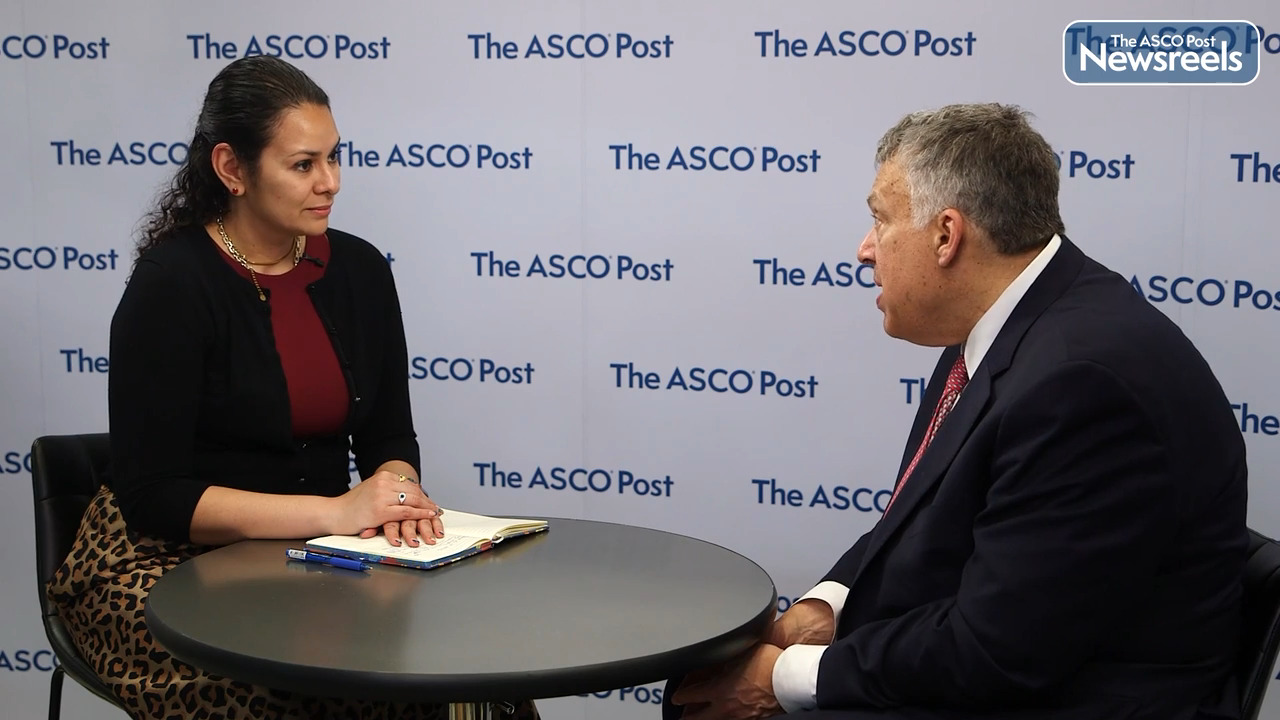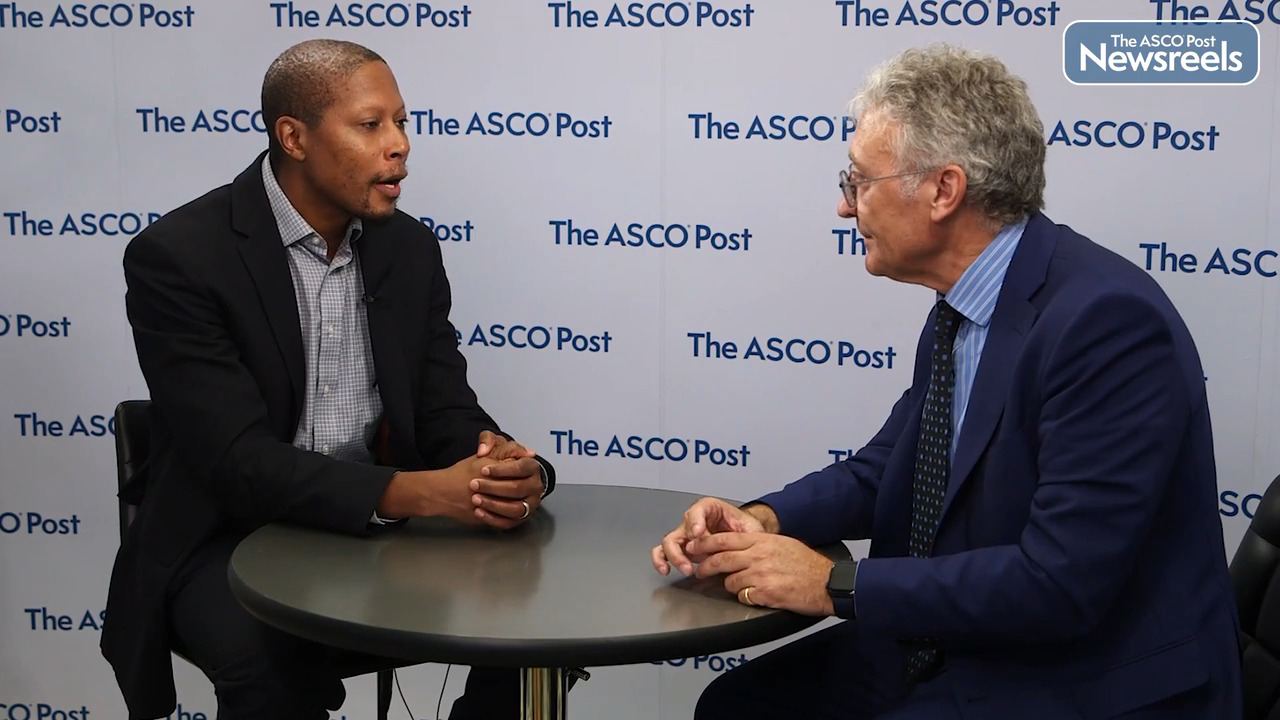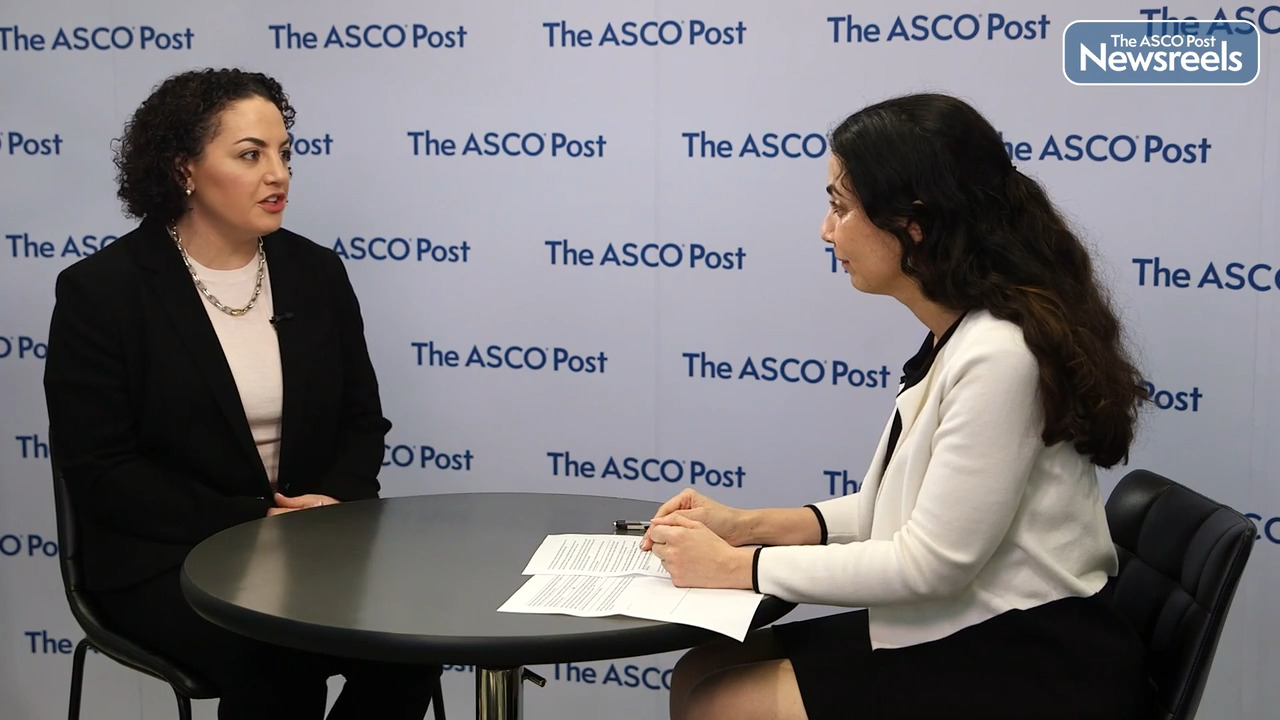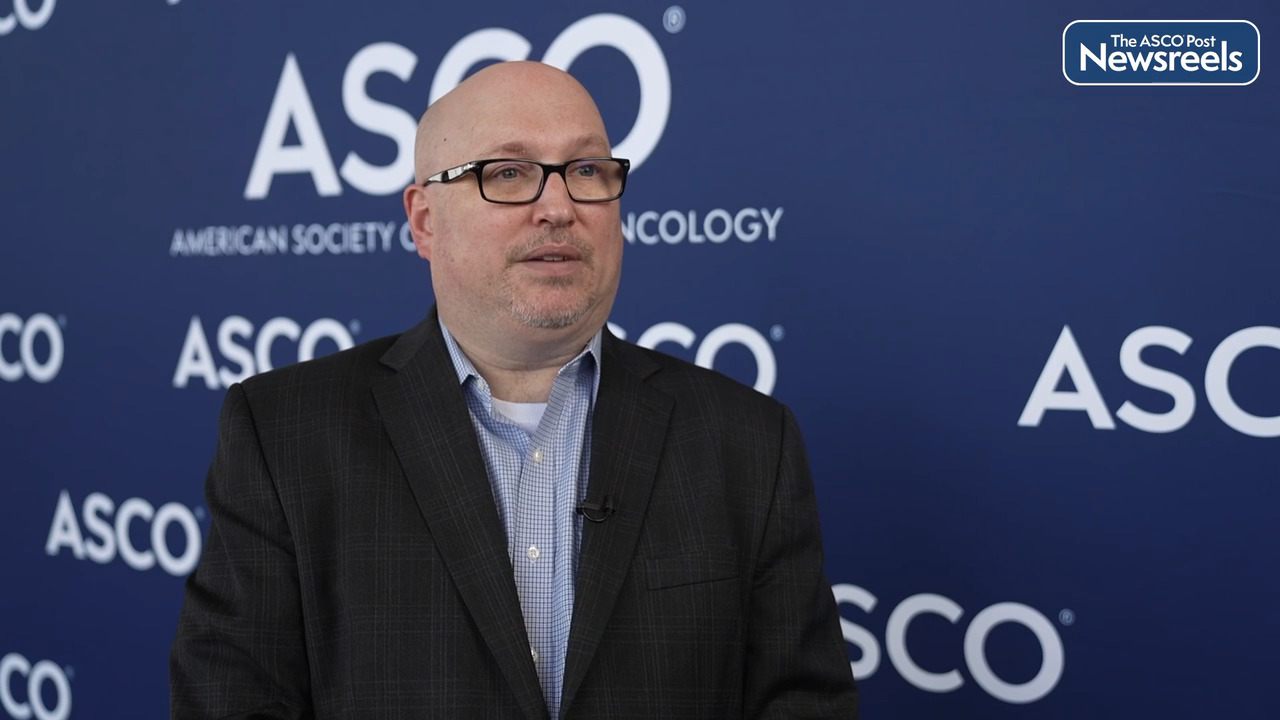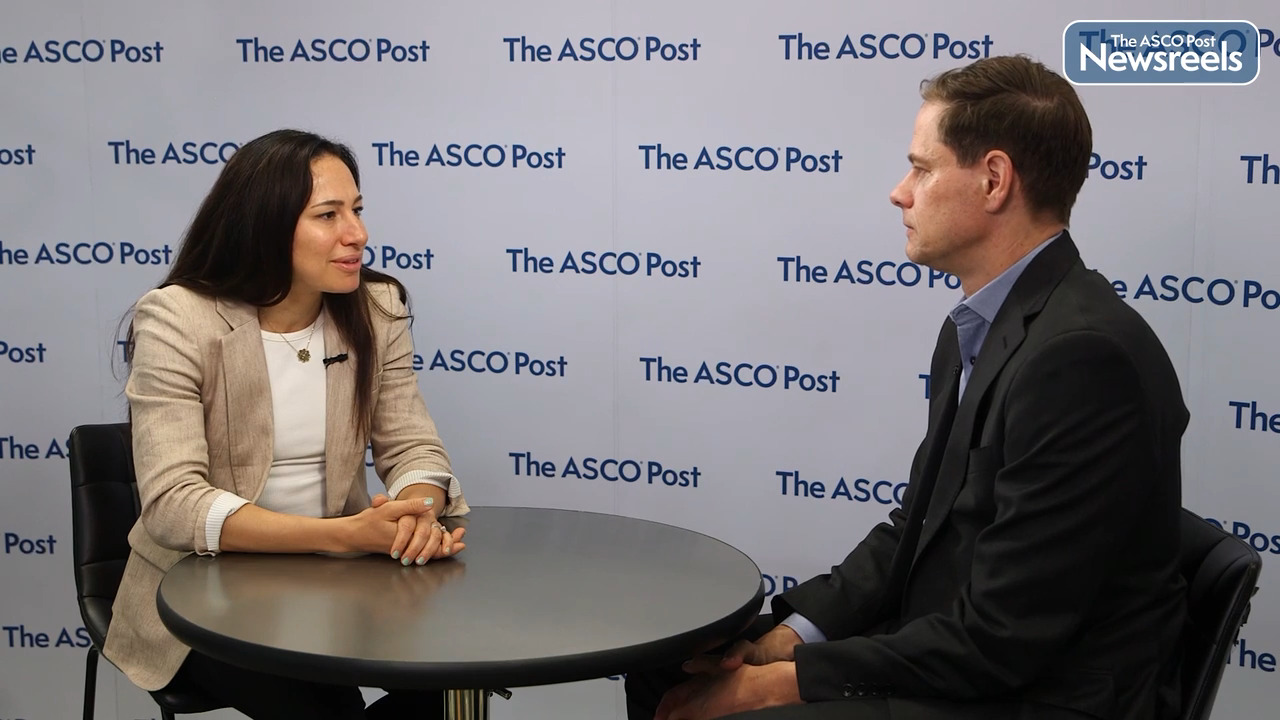Shilpa Gupta, MD, on Urothelial Carcinoma: Long-Term Outcome of Enfortumab Vedotin Plus Pembrolizumab
2023 ASCO Annual Meeting
Shilpa Gupta, MD, of Cleveland Clinic, discusses the results from the EV-103 study and the unmet need for effective first-line therapies in cisplatin-ineligible patients with locally advanced or metastatic urothelial carcinoma. After nearly 4 years of follow-up, the trial findings showed that enfortumab vedotin-ejfv plus pembrolizumab continues to demonstrate promising survival trends with rapid and durable responses in this population (Abstract 4505).
Transcript
Disclaimer: This video transcript has not been proofread or edited and may contain errors.
Shilpa Gupta, MD:
We are reporting the four-year follow-up of EV103 dose escalation in cohort A. This was the study in locally advanced and metastatic urothelial cancer patients who are ineligible to receive cisplatin and received a combination of enfortumab vedotin and pembrolizumab. Enfortumab vedotin is an ADC, which is already approved in the refractory setting in metastatic urothelial cancer. Previous data has led to the X-rated approval of this combination in this setting. This is the long-term data that is being reported, and we saw that the response rates by BICR was 73.3%. Median overall survival was 26 months at a median follow-up of 47 months. Median progression-free survival was 12.7 months, and the tail of the curve is still holding strong, and this is really important results for these patient populations where historically, the median overall survival used to be six to nine months.
There were no new signals of toxicity. The key toxicities that we saw with the combination were rash, peripheral neuropathy, fatigue, and these are all manageable. If dose reductions and dose discontinuations are done appropriately, these toxicities do tend to resolve. For example, the rash and the hyperglycemia tend to occur early and resolve very early if dose reductions and dose discontinuations or treatment breaks are given. Peripheral neuropathy takes some time to manifest, around 2.7 months at the median, and can resolve by seven months with dose reductions. We really need to be cautious of these toxicities and manage the patients appropriately, but this is really very important data for this patient population, and the ongoing phase three study of EV302, which is looking at this combination versus standard of care gemcitabine cisplatin, or gemcitabine carboplatin will further establish its efficacy across the board.
Related Videos
The ASCO Post Staff
Narjust Florez, MD, of Dana-Farber Cancer Institute, and Roy S. Herbst, MD, PhD, of Yale Cancer Center, discuss new phase III findings on osimertinib, a third-generation, central nervous system EGFR-TKI, which demonstrated an unprecedented overall survival benefit for patients with EGFR-mutated, stage IB–IIIA non–small cell lung cancer after complete tumor resection, with or without adjuvant chemotherapy (Abstract LBA3).
The ASCO Post Staff
Tycel J. Phillips, MD, of City of Hope National Medical Center, and Emanuele Zucca, MD, of the Oncology Institute of Southern Switzerland and the International Extranodal Lymphoma Study Group, discuss findings from the largest prospective study of patients with primary mediastinal B-cell lymphoma. The trial data support omitting radiotherapy in patients who achieve complete metabolic response after immunochemotherapy (Abstract LBA7505).
The ASCO Post Staff
Allison Betof Warner, MD, PhD, of Stanford University Medical Center, and Zeynep Eroglu, MD, of H. Lee Moffitt Cancer Center and Research Institute, discusses phase II findings showing that in patients with BRAF-mutant metastatic melanoma, dabrafenib plus trametinib and navitoclax (DTN) was associated with a complete response rate of 20% and an overall response rate of 84%. Additionally, there was a trend toward improved overall survival in patients treated with DTN compared with dabrafenib plus trametinib alone; the difference in overall survival was more pronounced in patients with a smaller tumor burden (Abstract 9511).
The ASCO Post Staff
Thomas E. Hutson, DO, PharmD, of Texas Oncology, discusses the 4-year follow-up results from the CLEAR study for patients with advanced renal cell carcinoma (RCC). The data showed that lenvatinib plus pembrolizumab continues to demonstrate clinically meaningful benefit vs sunitinib in overall and progression-free survival, as well as in overall and complete response rates, in first-line treatment (Abstract 4502).
The ASCO Post Staff
Rana R. McKay, MD, of the University of California, San Diego, and Brian I. Rini, MD, of Vanderbilt-Ingram Cancer Center, discuss the 5-year follow-up results with the combination of a checkpoint inhibitor plus a VEGFR tyrosine kinase inhibitor as first-line treatment for patients with advanced clear cell renal cell carcinoma (RCC). Pembrolizumab plus axitinib continued to demonstrate improved survival outcomes as well as overall response rate vs sunitinib for patients with previously untreated disease (Abstract LBA4501).
